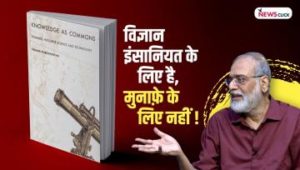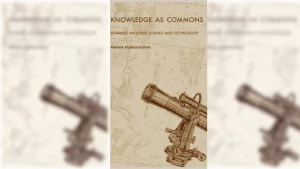Background:
Following various reports of violations of the principle of net neutrality in early 2015, the Telecom Regulatory Authority of India issued a consultation paper that sought public comment regarding the need to license ‘over the top’ service providers.
The regulatory framework proposed by this consultation paper was ill thought out in that the regulator was seeking to differentiate and license different types of content and services on the Internet – something that is both impractical and inadvisable for a variety of reasons. The consultation received a tremendous public response, with TRAI receiving over a million responses requesting it to put in place regulation that would uphold the principle of net neutrality.
While TRAI never published any findings or recommendations based on this consultation, due to the tremendous public interest in the issue (and consequent pressure by various political parties), the Department of Telecommunication, formed a committee to examine the issue of net neutrality and make recommendations in this regard. The DoT committee issued its report in May 2015, which notably recommends, “the core principles of Net Neutrality must be adhered to”.
Despite the issue of net neutrality capturing the public imagination to the extent it has, as well as the numerous statements by government officials regarding the need to protect the open Internet, neither the Government nor the sectoral regulator have to date proposed any concrete policies or regulations concerning the issue.
At the same time, we have continued to see violations of the principle of net neutrality – the most egregious probably being the Free Basics platform. The issue of zero rating (the practice where a content provider and service provider enter into an agreement to provide subsidized access to certain specific content) is one of the most complicated in the entire net neutrality debate and has come to the fore in India largely due to Facebook’s rebranding of Internet.org and its subsequent publicity blitz.
The TRAI Consultation Paper on Differential Pricing of Data Services:
Recently, TRAI issued another consultation paper that touches on the issue of net neutrality – and specifically the issue of zero rating.
In its consultation paper of December 2015, TRAI has sought public responses on permitting service providers to charge differential rates for users to access different content on the Internet. Essentially, this would permit service providers to offer different tariff packages for users accessing different types of content – so notionally, a service provider could charge more for accessing ‘x’ website than ‘y’ website.
The issue raised by TRAI is a fairly interesting one – you have various content and service providers who are coming together to provide subsidized access to certain specific content. Such practices, on the face of it, permit poorer people to access a certain limited range of content at low costs. However, such platforms cause tremendous damage to the Internet economy itself – largely by enabling the perpetuation of monopolies in the Internet space (and the associated problems – ranging from privacy concerns to issues of plurality of media). Further, such platforms affect the basic architecture of the Internet by casting service providers in the role of gatekeepers to the Internet. Generally speaking, on the Internet all content is equally accessible – however permitting differential pricing by service providers would turn this resource into a cable TV service, where you have to subscribe to specific content services or channel bouquets.
While differential pricing of services is a legitimate market practice – used across numerous industries – the question in this instance, is whether it is fair (or indeed possible) to segregate users based on the content or type of content being accessed or viewed.
It must be kept in mind that the Internet is comprised of over a billion websites! Platforms such as Free Basics do not provide access to the whole Internet – just some select content. Is it fair to provide this sort of access to the poor and underprivileged i.e. asking them to choose between access and freedom, particularly when there are numerous other models that provide a ‘net neutral’ method of providing subsidized access?
If Facebook and other such companies really wanted to help the underprivileged access the Internet, it could subsidize overall Internet access for the needy rather than just provide access to a limited array of content. There are numerous models used across the globe that do just this. For example:
- In India, Aircel has begun providing full internet access for free at 64 kbps download speed for the first three months;
- In Bangladesh, Grameenphone users get free data in exchange for watching an advertisement.
- In Africa, Orange users get 500 MB of free access on buying a $37 handset.
- In certain parts of Asia, Telenor’s clients get 20mb of data per day free in exchange for watching a 30 second advertisement.
- Various governments, both central and state, are examining the possibility of implementing different types of direct subsidies for accessing the Internet.
Once again, TRAI received a tremendous response to its consultation paper – with an analysis of the comments received showing a clear divide between large service and content providers (your Airtels, Vodafones, Facebooks etc.) and users and smaller service and content providers on the other side.
TRAI has on February 8, 2016, issued its order pursuant to this consultation. It has, adopting a pro public position, held that differential rating on the basis of content should not be permitted. (an analysis of the Regulations issued by TRAI in this regard will be published shortly)
What We Are Doing:
We have been involved in campaigning for strong net neutrality regulation through the FSMI as well as Society for Knowledge Commons. In addition to producing literature on the issue, we have organized signature petitions and been involved with coordination with other civil society groups to raise public awareness of the issue. We have submitted comments to the TRAI as well as DoT (amongst other law and policy making authorities) on the issue and written extensively in both new and traditional media.
One of the biggest challenges we have faced has been to demystify the issue of net neutrality – which can appear technical and intimidating to the lay public. However, the response to the TRAI consultations clearly indicates that the public of India is interested in such issues – and will not allow a vital resource to be turned into a money making machine for corporates.
The TRAI order barring the use of zero-rated and similar platforms (that breach net neutrality principles), represents a huge win for the thousands of activists who have been involved with this issue. Nonetheless, there is still plenty of work to do – as there are still numerous unresolved issues (for instance that of what are legitimate traffic management practices, whether websites can be slowed down or sped up by service providers, etc.) that could affect how Indians access the Internet.
Further Resources:
- https://www.knowledgecommons.in/2016/01/08/facebooks-fraudulent-campaign-on-free-basics/
- https://www.knowledgecommons.in/2016/01/08/the-trojan-horse-of-free-basics/
- https://www.knowledgecommons.in/2016/01/08/what-facebook-wont-tell-you-about-free-basics/
- https://www.knowledgecommons.in/2015/11/03/why-india-should-be-worried-about-net-neutrality/
- https://www.knowledgecommons.in/2015/07/18/reasonable-analysis/
- https://www.knowledgecommons.in/2015/05/14/zero-rating/
- https://www.knowledgecommons.in/2015/04/14/privileging-telcos-over-netizens/
- https://www.knowledgecommons.in/2015/04/12/trai-helping/



